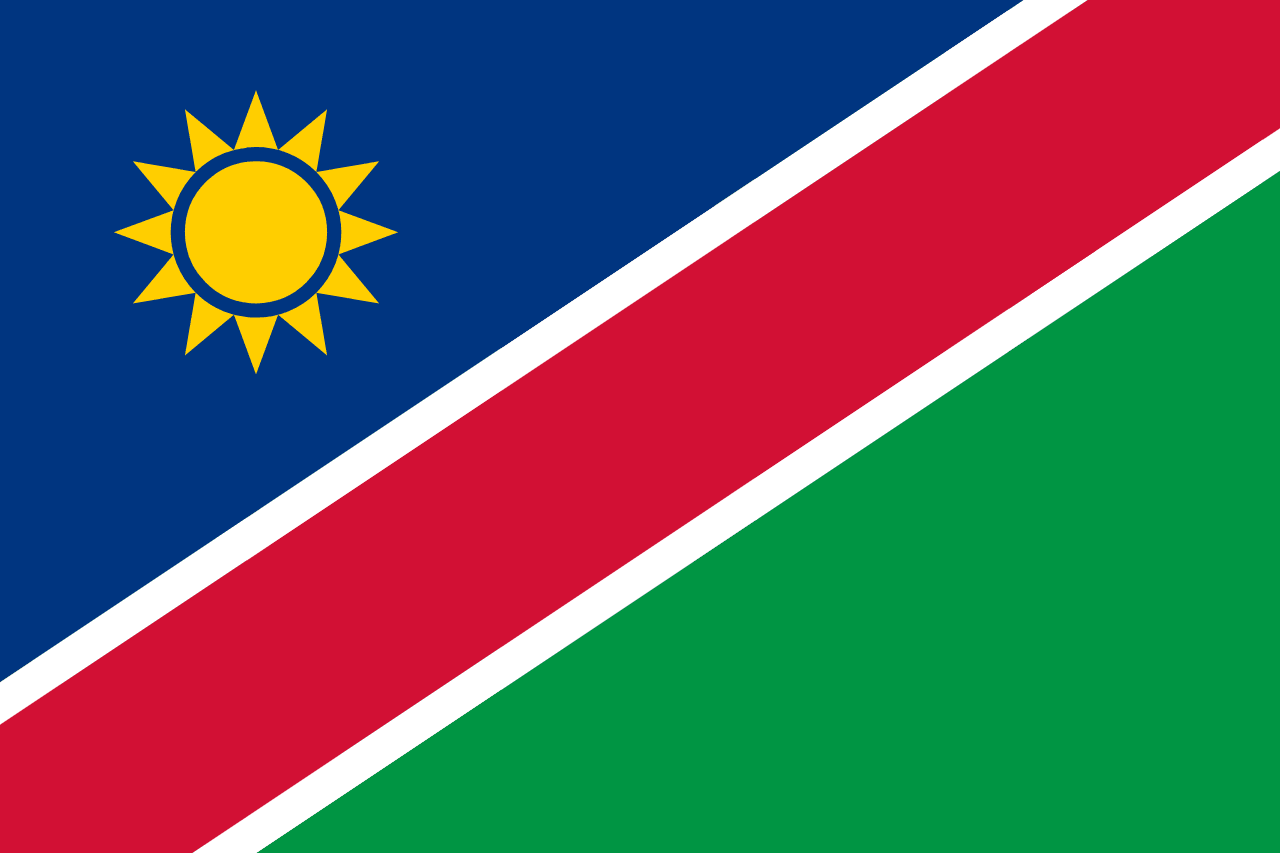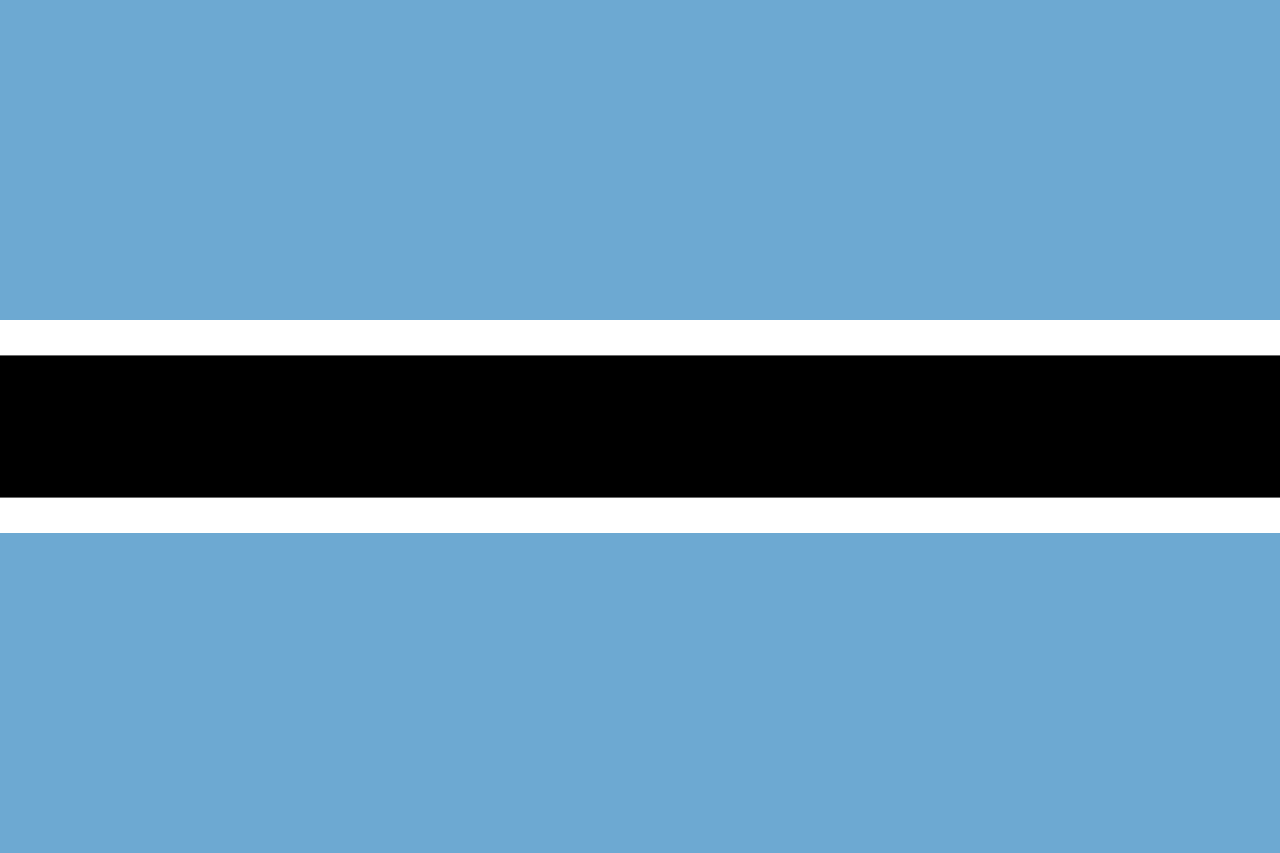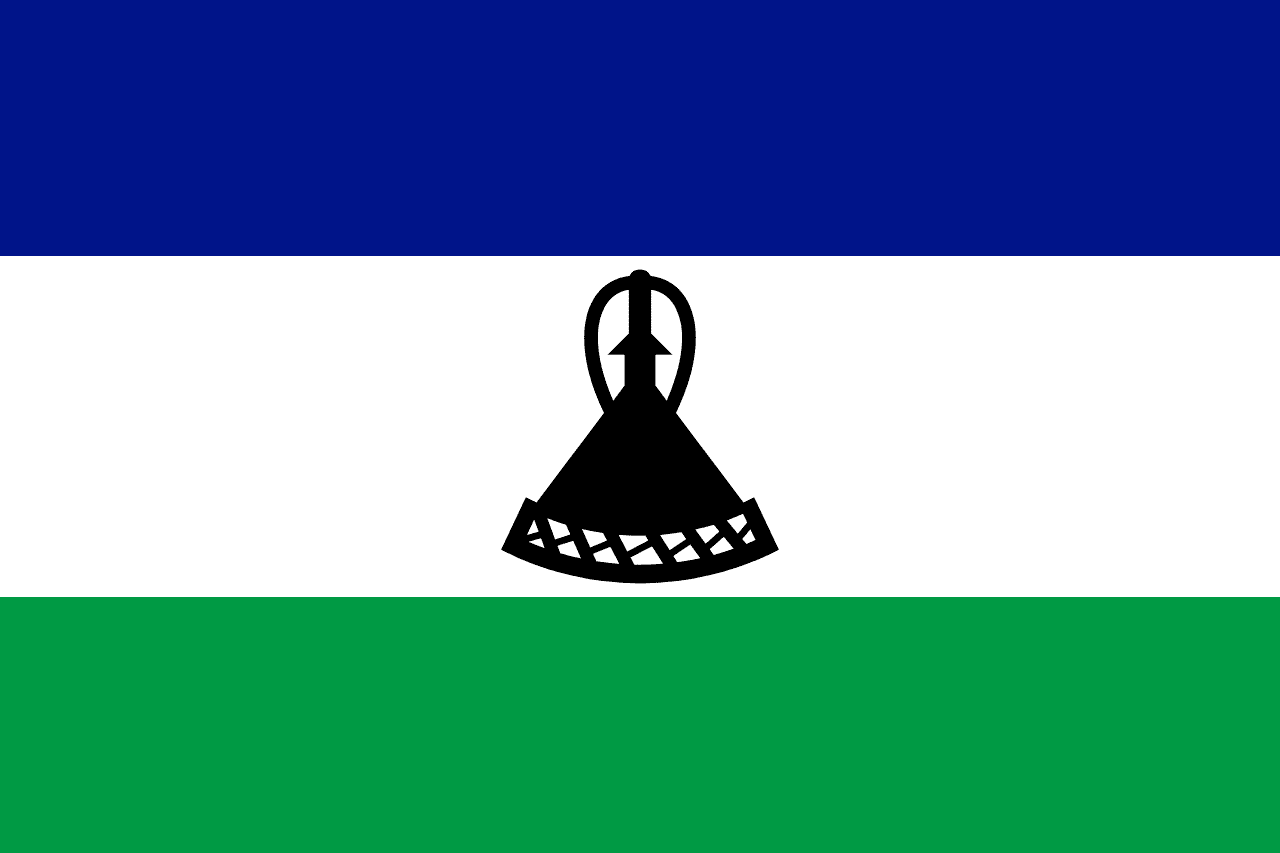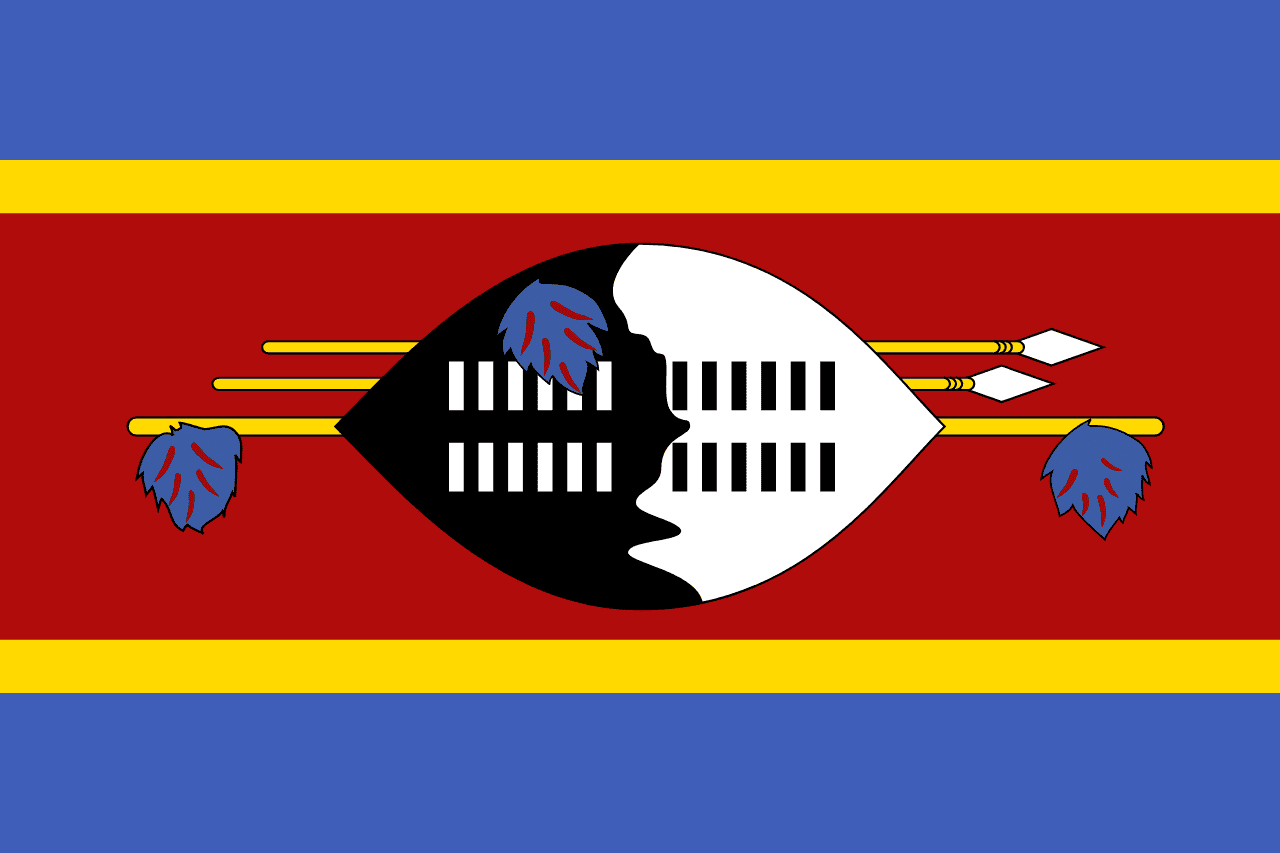namibia Flag Meaning
A diagonal tricolor divided from the lower hoist to upper fly by a red band with white borders, with blue in the upper hoist containing a golden sun, and green in the lower fly. The design symbolizes Namibia’s land, people, and resources.
- Continent
- Africa
- Adopted
- 1990
- Ratio
- 2:3
- Colors
- blue, red, green, white, yellow
- Designer
- Flag Committee chosen by Constituent Assembly

Symbolism
Blue Field: Represents the sky, Atlantic Ocean, and water resources.
Red Band: Symbolizes the people, their heroism, and determination for equality.
Green Field: Represents vegetation, agriculture, and natural resources.
White Borders: Symbolize peace and unity.
Golden Sun: Represents life, energy, and the desert climate.
History
- 1884: Namibia became a German colony known as German South-West Africa.
- 1915: Occupied by South Africa during World War I, later administered under a League of Nations mandate.
- 1966: Armed struggle for independence began, led by SWAPO.
- March 21, 1990: Namibia gained independence and adopted its national flag.
Trivia
- The flag’s design was chosen from over 800 public submissions.
- Namibia is one of the sunniest countries in the world, reflected in the sun emblem.
- The red diagonal stripe symbolizes the people and their unity across the land.
- The country was the last African colony to gain independence from South Africa’s apartheid regime.
- The flag combines Pan-African colors with unique national elements.
Related Countries

Botswana
Africa
Light blue field with a central black horizontal stripe bordered by thin white stripes, representing the life-giving rains, racial harmony, and the zebra that symbolizes the coexistence of black and white people in peace.

South Africa
Africa
A Y-shaped design with six colors converging toward the flag pole, representing the convergence of diverse elements in South African society and the country's path forward as a unified nation after the end of apartheid and the transition to democracy.

Zimbabwe
Africa
Seven horizontal stripes alternating green, yellow, red, black, red, yellow, green with a white triangle at the hoist containing a red five-pointed star and the Zimbabwe Bird, representing the nation's agricultural wealth, mineral resources, blood shed for independence, the African people, peace, and the ancient civilization of Great Zimbabwe.

Lesotho
Africa
Three horizontal stripes of blue, white, and green with a black traditional Basotho hat (mokorotlo) centered on the white stripe, representing peace, rain, prosperity, and the cultural heritage of this mountain kingdom completely surrounded by South Africa.

Angola
Africa
Two horizontal stripes of red and black with a yellow emblem in the center featuring a machete, star, and half gear wheel, representing the blood shed for independence, the African heritage, and the tools of liberation - agricultural work, socialism, and industrial progress.

Eswatini
Africa
Five horizontal stripes of blue, yellow, red, yellow, and blue with a traditional Swazi shield and two spears overlaid on the center red stripe, representing peace, mineral wealth, past struggles, and the protection of the kingdom.